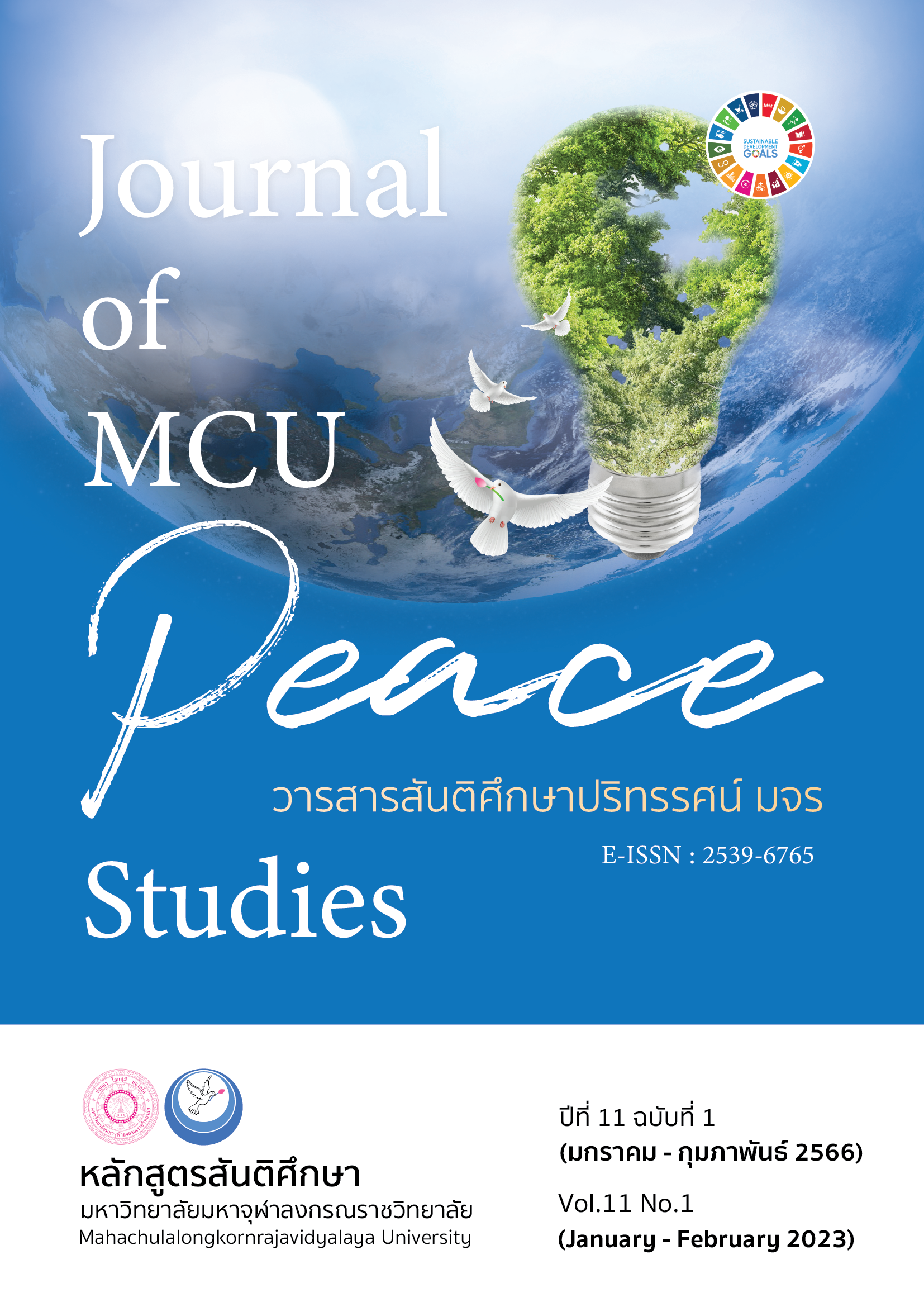การทดลองใช้โมเดลอินแคมป์: รูปแบบการเรียนการสอนการทำโครงงานธุรกิจเชิงนวัตกรรมที่ประยุกต์หลักปรัชญาของเศรษฐกิจพอเพียง ในรายวิชาเพิ่มเติมผู้ประกอบการพอเพียง 4.0 กรณีศึกษาของวิทยาลัยอาชีวศึกษาเทคโนโลยีเอเซีย
Main Article Content
บทคัดย่อ
บทความวิจัยนี้มีวัตถุประสงค์ของการวิจัย คือ 1) เพื่อศึกษาผลการเรียนรู้ของนักเรียนหลังการเรียนรายวิชาผู้ประกอบการพอเพียง 4.0 โดยใช้โมเดลอินแคมป์ ในด้านความรู้ ทักษะปฏิบัติ และคุณลักษณะอันพึงประสงค์ 2) เพื่อศึกษาการนำโมเดลอินแคมป์ไปใช้กับรายวิชาผู้ประกอบการพอเพียง 4.0 โดยครู เป็นการวิจัยกึ่งทดลอง กลุ่มตัวอย่างที่ใช้ในการวิจัย ได้แก่ นักเรียนระดับประกาศนียบัตรวิชาชีพ ประเภทวิชาพาณิชยกรรม ของวิทยาอาชีวศึกษาเอกชน ในกรุงเทพมหานคร ที่เรียนรายวิชาผู้ประกอบการพอเพียง 4.0 โดยใช้โมเดลอินแคมป์ในการจัดการเรียนการสอน จำนวน 90 คน และครูที่นำโมเดลอินแคมป์ไปใช้ในการจัดการเรียนการสอนรายวิชาผู้ประกอบพอเพียง 4.0 จำนวน 9 คน เครื่องมือที่ใช้ในการวิจัย ประกอบด้วย แนวทางการจัดการเรียนการสอนโดยใช้โมเดลอินแคมป์ ชุดประเมินผลการเรียนรู้ของนักเรียน และแบบประเมินความเป็นประโยชน์ของโมเดลอินแคมป์โดยครู สถิติที่ใช้ในการวิเคราะห์ข้อมูล ได้แก่ ค่าร้อยละ ค่าเฉลี่ย และส่วนเบี่ยงเบนมาตรฐาน
ผลการวิจัยพบว่า 1) ผลการเรียนรู้ของผู้เรียน ด้านความรู้ ทักษะปฏิบัติ และคุณลักษณะที่พึงประสงค์อยู่ในระดับปานกลางและสูงทุกรายการประเมิน โดยผลการเรียนรู้ที่ได้คะแนนสูงสุดและอยู่ในระดับสูง ได้แก่ การทำต้นแบบนวัตกรรมทางธุรกิจแบบงานกลุ่ม (85%) ส่วนผลการเรียนรู้ที่ได้คะแนนต่ำสุด และอยู่ในระดับปานกลาง คือ การทำรายงานโครงงาน (72%) และการนำเสนอโครงงานด้วยวาจา (73%) และ 2) ระดับความเป็นประโยชน์ของการใช้โมเดลอินแคมป์โดยครู ทุกประเด็นการประเมินได้รับการประเมินสูงและสูงมาก ทุกข้อประเมิน โดยประเด็นโมเดลอินแคมป์ใช้ง่าย ไม่ซับซ้อน และประเด็นการใช้โมเดลอินแคมป์ให้ความคุ้มค่าด้านค่าใช้จ่าย ได้รับการประเมินระดับความประโยชน์โดยครูสูงที่สุด และอยู่ในระดับสูงมาก
Article Details

อนุญาตภายใต้เงื่อนไข Creative Commons Attribution-NonCommercial-NoDerivatives 4.0 International License.
ทัศนะและความคิดเห็นที่ปรากฏในบทความในวารสาร ถือเป็นความรับผิดชอบของผู้เขียนบทความนั้น และไม่ถือเป็นทัศนะและความรับผิดชอบของกองบรรณาธิการ ยินยอมว่าบทความเป็นลิขสิทธิ์ของวารสาร
เอกสารอ้างอิง
Ariwibowo, B., Slamet, A., & Syamwil, S. (2018). Development of Learning Model of Project-Based Learning Integrated with Entrepreneurship in the Productive Learning Motorcycle Tune-Up Competence. Journal of Vocational Career Education, JVCE 3(1), 1-9.
Budhtranon, W. (2020). An Instructional Model for Creating an Innovative Business Project Applying the Sufficiency Economy Philosophy for Private Vocational Colleges in Bangkok. (Doctoral Dissertation). Mongkut’s University of Technology North Bangkok. Bangkok.
Contipelli, E., & Picciau, S. (2020). Post-Covid-19 Rebuilding our Paradigms Through Sustainable Development Goals and the Sufficiency Economy Philosophy. New York: IndraStra Global.
Cordeva, M. F., & Celone, A. (2019). SDGs and Innovation in the Business Context Literature Review. Sustainability, 11(7043), MDPI.
Jeenaboonrueang, S. (2018). Sufficiency Economy Philosophy: A Way toward Business Sustainability. Journal of Management Science Chiangrai Rajabhat University, 13(2), 1-13.
Khammanee, T. (2017). Principles of Instruction. Bangkok: Chulalongkorn University Printings.
Khewpairee, V., & Khewpairee, D. (2017). Risk Management Model Compatible Sufficiency Economy Philosophy for Community Enterprise in Bangkok. Proceedings of the 4th National Research Conference (pp.451-461).Phetchabun:Phetchabun Rajabhat University.
Khuenkaew, P., & Noppalit, T. (2016). Development of Learning Provision Model for 21st Century Learners to Promoting Statistical Thinking among Higher Education Students. Far Eastern Academic Journal, 10(3), 81-98.
Lubis, A. L., Jalinus, N., Abdullah, R., & Hayadi, B. H. (2019). Project-Based Entrepreneurship Education Model in Vocational High Schools. International Journal of Scientific & Technology Research, 8(6), 145-147.
Maesincee, S. (2017). SEP for SDGs: Move Forward to Thailand 4.0. Now and The Future of SDGs in Thailand Public Seminar. Bangkok: Novotel Hotel.
National Strategy Secretariat Office, Office of the National Economic and Social Development Board. (2017). National Strategy 2018 – 2037 (Summary). (1st ed.). Bangkok: National Strategy Secretariate Office.
Pedersen, C. S. (2018). The UN Sustainable Development Goals (SDGs) Are a Great Gift to Business. 25th CIRP Life Cycle Engineering (LCE) Conference, 30 April - 2 May 2018. Denmark: Copenhagen CIRP, Elsevier.
Rana, S. (2018). Principles of Sufficiency Economy and Sustainable Development. Shodh Gyaan, 5(2), 27–30.
Secretariate of the Cabinet. (2017). Thai Khu Fah Periodical. Bangkok: Government House.
Siriphattrasophon, S. (2020). The COVID – 19 Pandemic: Impacts on Thai Small and Mediums Enterprises and Strategies for Revival. Journal of the Association of Researchers, 25(2), 10-30.
Suntrayuth, S. (2018). The Sufficiency Economy Philosophy and Small and Medium-Sized Enterprises in Thailand. International Review of Management and Marketing, 8(2), 33-39.
Thailand Board of Investment (BOI). (2017). Thailand 4.0 Means Opportunity Thailand. Thailand Investment Review, 27(1), 3-5. Bangkok: Office of the Board of Investment.
Thongpoon, S., Ahmad, N. H., & Mahmud, I. (2017). Sustainable Approach towards Thai SMEs: The Effects of Country Philosophy of Sufficiency Economy and Government Support. In Ahmad, H. N., Ramayah, T., Halim, H. A., & Rahman, S. A. (Eds.), Handbook of Research on Small and Medium Enterprises in Developing Countries, 1-22. Pennsylvania: GIG Global.
Todeschini, B. V., Cortimiglia, M. N., Callegaro-de-Menezes, D., & Ghezzi, A. (2017). Innovative and Sustainable Business Models in the Fashion Industry: Entrepreneurial Drivers, Opportunities and Challenges. Business Horizon, 60, 759-770.
United Nations. (2020). The 17 Goals. Retrieved June 25, 2020, from https://sdgs.un.org/goals
U-tantada, S. et al. (2016). Sufficiency Economy and Sustainability. The 2nd Multidisciplinary Research and Innovation for Globally Sustainable Development (MRIGSD).
Wattanaburanon, A. (2016). Development Research of LOVE Model for Enhancing Comprehensive Humanization: A Research Program for Higher Education Students. Bangkok: O.S. Printing House.
Winit, W., & Kantabutra, S. (2017). Sustaining Thai SMEs Through Perceived Benefits and Happiness. Management Research Review, 40(5), 567-577.
World Health Organization. (2020). WHO Director-General's Opening Remarks at the Media Briefing on COVID-19. Retrieved March 12, 2021 from https://www.who.int/director-general/speeches/detail/who-director-general-s-opening-remarks-at-the-media-briefing-on-covid-19---11-march-2020
Yarbrough, D. B., Shulha, L. M., Hopson, R. K. & Caruthers, F. A. (2011). The Program Evaluation Standards: A Guide for Evaluators and Evaluation Users. California: SAGE Publications, Inc.


